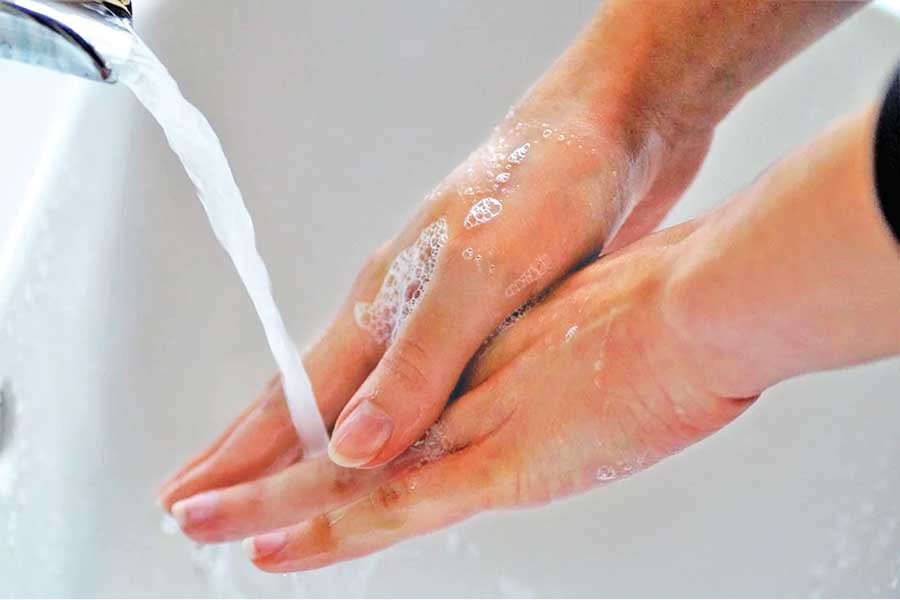Coronavirus disease (COVID-19) has undoubtedly caused one of the most frightening pandemics of this generation. It is an infectious disease caused by a newly discovered coronavirus. The COVID-19 virus spreads primarily through droplets of saliva or discharge from the nose when an infected person coughs or sneezes. Hence it is imperative that one also practises respiratory etiquette-- for example, coughing into a flexed elbow.
On December 31, 2019, China made the World Health Organization (WHO) aware about numerous cases of abnormal pneumonia in Wuhan. The virus was unrecognised back then, however, several amongst the infected patients worked at the city's Human Seafood Wholesale Market that was closed on January 01 this year. The health experts started working to identify this virus, while the number of infected individuals exceeded forty. The virus was eventually named on January 07 as 2019-nCoV and was identified as a member of the coronavirus family which includes SARS and the common cold.
As months passed by and the virus started spreading dramatically to at least 177 countries and territories, the panic level of people worldwide started increasing at an alarming rate as well. The panic is primarily fed by the fact that no authorised and proven vaccine or cure for this disease has been discovered yet. With each additional infection and death to the basket, several rumours about the emergence and prevention techniques of this virus are arising too.
But false suggestions during such a dire time can cause drastic negative impacts both economically and socially. So this article will burst five myths about COVID-19 as everyone wants to live in a healthy and fully-functioning society.
COVID-19 cannot be transmitted during hot and humid climate
This is not true. From what has been observed till now, COVID-19 virus can be transmitted in all areas regardless of the climate, as per the opinions of the experts in news reported in media.
Thermal scanners can detect people infected with the new coronavirus
This is false. The thermal scanners are only capable of detecting people who have developed a fever due to infection by the new coronavirus. However, they are ineffective in detecting people who have acquired the virus but are not sick yet. The reason behind this is it takes approximately two to 10 days before the infected person displays symptoms of sickness.
Spraying alcohol or chlorine all over your body kills the new coronavirus
This is not true. Spraying alcohol or chlorine all over your body will not kill the coronavirus that has already entered your body. In fact, spraying such substances can be detrimental to clothes as well as to eyes and mouth. Alcohol and chlorine are effective methods of disinfecting surfaces, such as tables and walls, but they ought to be adopted under appropriate recommendations.
The new coronavirus only affects the older people
This is false. People of all ages can acquire this virus but older people and people with pre-existing medical conditions-- for instance, asthma, diabetes, and heart disease-- are seen to be more susceptible to coronavirus due to having a weak immune system in their bodies.
Wearing a face mask ONLY can protect a person from coronavirus
This is not true. Wearing a face mask only is not the closing deal between you and the virus infection since you can still be infected via eyes and tiny particles (called aerosols) can penetrate your masks. However, masks are capable of capturing droplets which are the main transmission route of coronavirus. If you are in close contact with an infected person, wearing a mask cuts the chance of the virus being passed on to you. If you are an infected person yourself, wearing a mask lowers the chances of the virus transmission to other people. But masks will make a little difference if you are in a crowded bus or public gathering. Hence, social distancing is important. Wash your hands with soap before wearing a mask and avoid touching the front of the mask while in use. Discard the mask as soon as it gets damp and do not reuse a single-use mask.
The only two prevention techniques to survive this horrifying pandemic is to maintain personal hygiene and social distance. Wash your hands frequently with soap and water. Keep a hand sanitizer with you when you go out and use it in frequent intervals. Avoid touching your eyes, nose, and mouth. Maintain at least one metre (three feet) between anyone who is coughing or sneezing. STAY HOME. We can definitely overcome this by being responsible citizens.
The writer is a third year student of BBA programme at the Institute of Business Administration (IBA), University of Dhaka. She can be reached at [email protected]


